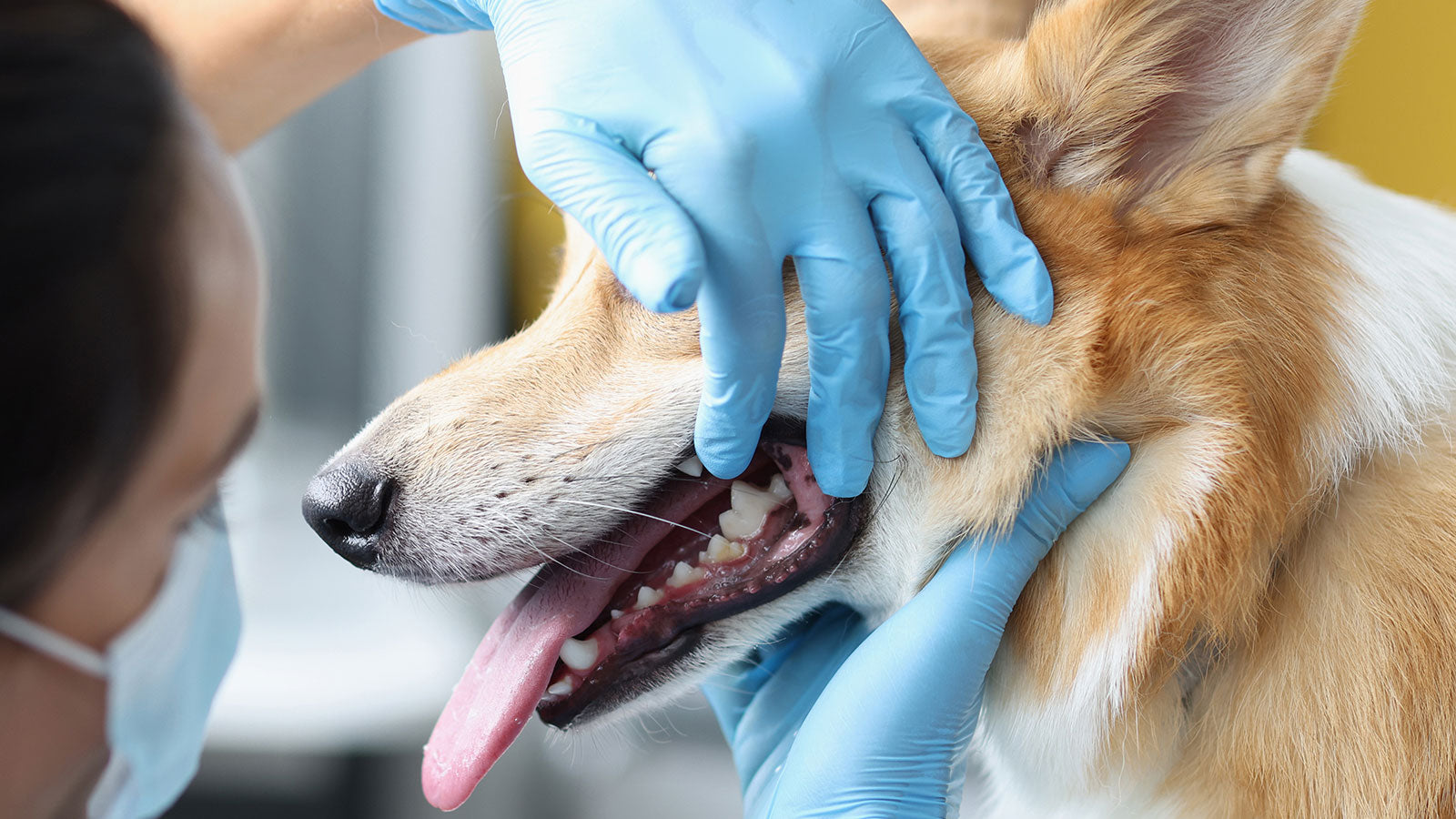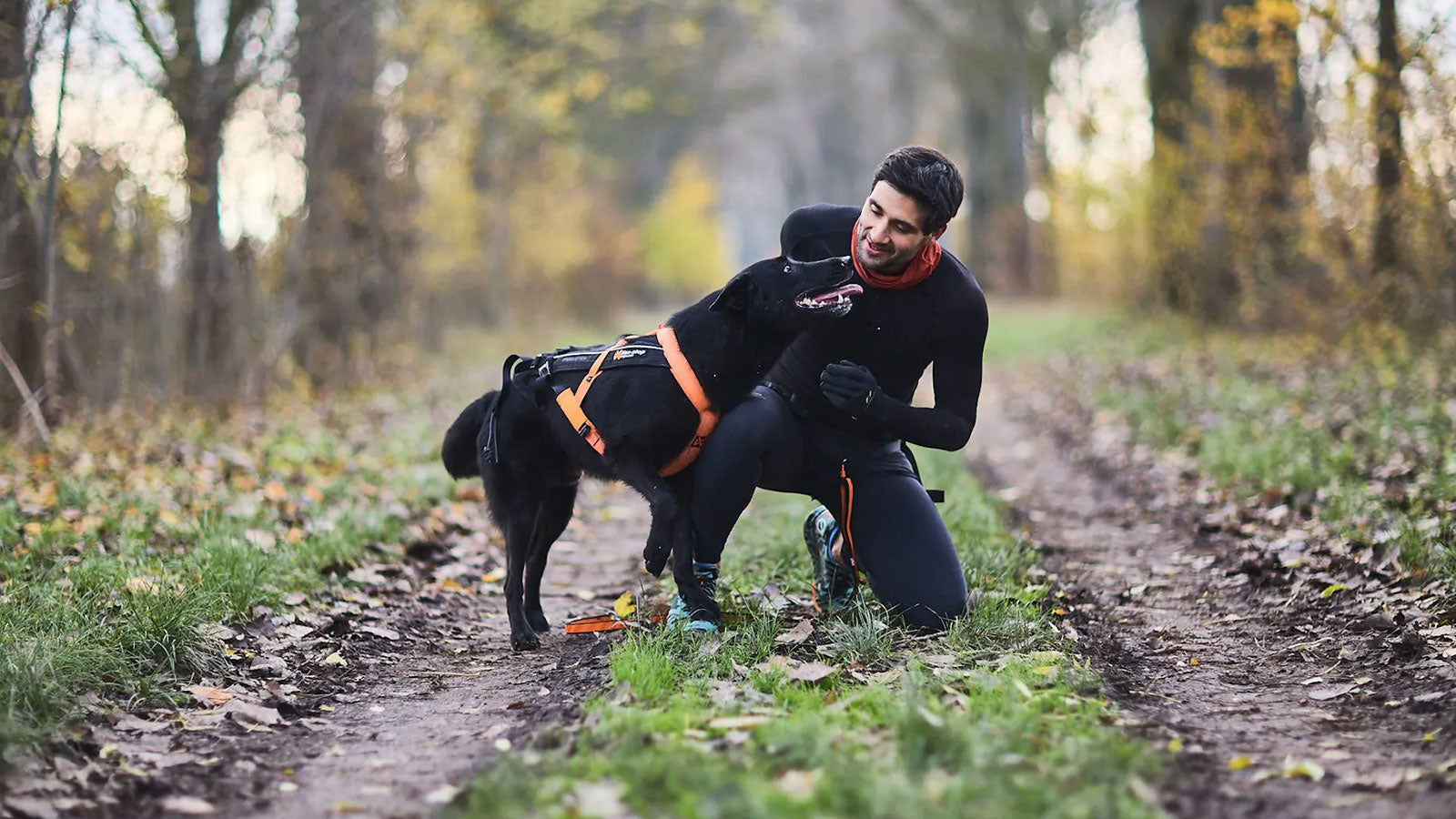Oral health is an essential component of overall wellness for our canine companions. Just like humans, dogs can experience toothaches and other dental issues that cause discomfort and affect their quality of life.
However, because dogs often hide their pain and cannot directly communicate their discomfort, it is up to pet owners to recognize the subtle signs of a dental problem. This article will explore how to determine if your dog has a toothache, the symptoms to look for, and what steps to take for prevention and treatment.
Understanding Dental Problems in Dogs
Dogs use their teeth for more than just eating—they help them play, explore, and interact with their environment. Unfortunately, this heavy use can lead to a variety of dental problems, including:
- Periodontal Disease: The most common dental issue in dogs, affecting about 80% of dogs over three years old. It starts with plaque buildup and can progress to infection and tooth loss if not treated.
- Tooth Fractures: Dogs love to chew on bones, toys, and other objects, but this can sometimes result in a broken tooth.
- Tooth Root Abscesses: An abscess is a pocket of pus that forms due to a bacterial infection. Abscesses can develop when a tooth is damaged or the gum line recedes.
- Oral Tumors and Cysts: Less common but still a significant concern, tumors and cysts in the mouth can cause pain and disrupt normal chewing and eating.
Recognizing these problems early is crucial for your dog’s health and comfort. Let's discuss the common signs and symptoms of a toothache in dogs.
Signs and Symptoms of a Toothache in Dogs
Dogs, as prey animals, instinctively hide signs of pain to avoid appearing vulnerable. This natural instinct can make it challenging to detect when they are suffering from dental pain. However, there are several key signs and symptoms that can help you determine if your dog has a toothache:
1. Changes in Eating Habits
One of the most telling signs of dental pain in dogs is a change in their eating habits. Since toothaches make chewing painful, dogs may:
- Avoid Hard Food: Dogs with tooth pain may show reluctance to eat dry kibble or hard treats. They may prefer softer food that is easier to chew.
- Chew on One Side: If a particular tooth or side of the mouth is causing pain, your dog might chew only on the opposite side.
- Drop Food: Dropping food from their mouth or having difficulty picking it up can indicate discomfort.
If you notice your dog has stopped eating or shows less enthusiasm for food, it could be a sign of a toothache or other oral health issues.
2. Behavioral Changes
Pain can lead to changes in behavior. Dogs experiencing toothaches may become more irritable or withdrawn. Look for the following behavioral signs:
- Aggression or Irritability: A normally friendly dog may growl or snap if someone tries to touch its face or mouth. This behavior change can indicate pain.
- Avoiding Play: Dogs may avoid playing with chew toys or engaging in activities that involve their mouth.
- Pawing at the Face: Some dogs will paw at their face or rub their mouth against furniture or the floor in an attempt to relieve the pain.
Behavioral changes are often one of the earliest signs that something is wrong, making it essential to observe any unusual actions.
3. Physical Signs in the Mouth
Inspecting your dog’s mouth can provide direct evidence of dental problems. Look for the following signs:
- Swollen or Bleeding Gums: Red, swollen, or bleeding gums are a clear indication of dental disease or injury.
- Loose, Broken, or Discolored Teeth: These are direct indicators of dental issues that may require professional treatment.
- Foul Breath: While dog breath isn’t known for being fresh, an especially foul or rancid smell can indicate infection, gum disease, or decaying teeth.
Regularly checking your dog's mouth can help catch these signs early, making treatment easier and more effective.
4. Visible Signs of Discomfort
Dogs may exhibit visible signs that indicate dental pain. These signs can include:
- Excessive Drooling: A dog with a toothache may drool more than usual, and there may be traces of blood in the saliva.
- Vocalizing When Eating or Yawning: Whining, yelping, or making unusual noises when eating, yawning, or even drinking water can be a red flag.
- Reluctance to Be Touched on the Head: If a dog flinches or pulls away when its head or face is touched, it may be due to oral pain.
These signs can sometimes be mistaken for other health issues, so it is crucial to consult with a veterinarian for a proper diagnosis.
5. General Signs of Pain or Illness
Beyond specific dental-related signs, general signs of pain or illness can also indicate a problem:
- Decreased Energy Levels: A dog in pain may seem more lethargic or unwilling to engage in regular activities like walking or playing.
- Hiding or Withdrawing from Interaction: If a typically social dog begins hiding or avoiding family members, it could be due to pain or discomfort.
- Weight Loss: Reduced appetite due to dental pain can lead to weight loss over time, which can become noticeable if the problem persists.
These signs emphasize the importance of observing your dog's overall health and behavior regularly.
What to Do If You Suspect a Toothache
If you notice any of these signs, it is crucial to act quickly to prevent further complications and alleviate your dog's pain. Here are the steps to take:
1. Schedule a Veterinary AppointmentA veterinarian is the only professional who can accurately diagnose a dental problem. During the visit, the vet will conduct a thorough oral examination and may recommend dental X-rays to assess the condition of the teeth below the gum line.
2. Follow Through with Recommended TreatmentDepending on the diagnosis, your vet may suggest various treatments, such as:
- Professional Dental Cleaning: This procedure involves removing tartar and plaque buildup and polishing the teeth to prevent further accumulation.
- Tooth Extraction: In cases of severe decay or infection, removing the affected tooth may be necessary.
- Medications: Antibiotics or pain relief medications may be prescribed to manage infection and alleviate discomfort.
It's essential to follow through with any recommended treatments to ensure your dog's comfort and health.
3. Provide Appropriate Home CareOnce the immediate dental issue is addressed, maintaining proper oral hygiene at home is vital. Here are some tips for home care:
- Brush Your Dog’s Teeth Regularly: Use dog-specific toothpaste and a soft-bristled brush to clean your dog’s teeth several times a week.
- Offer Dental Chews and Toys: Dental chews and toys are designed to help reduce plaque and tartar buildup.
- Regular Veterinary Checkups: Annual or semi-annual veterinary checkups are crucial to catching any dental issues early.
Consistent home care and regular veterinary visits are key to preventing future dental problems.
Preventive Dental Care for Dogs
Prevention is always better than treatment when it comes to dental health. Here are some proactive steps to ensure your dog's teeth remain healthy:
- Regular Brushing: Make tooth brushing a part of your dog’s routine. Starting this early in a dog’s life can make the process easier.
- Healthy Diet: A balanced diet is crucial not just for overall health but also for oral health. Some diets are formulated to help reduce plaque and tartar.
- Dental Chews and Treats: These products are specifically designed to promote oral health and can be used as part of a comprehensive dental care routine.
- Annual Dental Exams: Regular veterinary dental exams are essential to monitor oral health and catch any issues early.
By prioritizing preventive care, you can help ensure your dog’s teeth remain healthy and pain-free throughout its life.
Herbal and Home Remedies for Toothache Relief in Dogs
Yes, there are several herbal and home remedies that can provide temporary relief for toothaches in dogs. However, it is important to note that these remedies should be used cautiously and never as a substitute for professional veterinary care. A toothache often indicates an underlying issue, such as an infection, abscess, or tooth decay, which requires proper diagnosis and treatment from a veterinarian.
That said, some safe herbal and home remedies can help alleviate minor discomfort in dogs until a vet visit is possible:
1. Chamomile
- Benefits: Chamomile is known for its anti-inflammatory, antibacterial, and calming properties.
- How to Use: Brew a chamomile tea, let it cool, and use a soft cloth or gauze pad to gently apply it to the affected area in your dog's mouth. You can also add a few drops of chamomile tincture (alcohol-free) to water and apply it with a dropper directly onto the gums.
2. Aloe Vera Gel
- Benefits: Aloe vera has natural antibacterial and anti-inflammatory properties that can help soothe irritated gums.
- How to Use: Apply a small amount of pure, food-grade aloe vera gel directly onto the affected gums. Ensure the aloe vera product is safe for ingestion and free from added chemicals or preservatives.
3. Coconut Oil with Turmeric
- Benefits: Coconut oil has antibacterial properties, while turmeric is known for its anti-inflammatory effects.
- How to Use: Mix a teaspoon of organic coconut oil with a pinch of turmeric powder to form a paste. Apply this paste to the affected tooth or gums using a clean finger or a soft cloth. Turmeric can stain, so be careful when applying it.
4. Clove Oil (Diluted)
- Benefits: Clove oil contains eugenol, a natural anesthetic and antiseptic that can help numb pain and reduce infection.
- How to Use: Dilute clove oil with a carrier oil (such as coconut oil) in a 1:5 ratio (1 drop of clove oil to 5 drops of carrier oil). Apply a tiny amount to the affected area with a cotton swab. Note: Clove oil should be used sparingly and with caution, as it is potent and can cause irritation if overused.
5. Calendula (Marigold)
- Benefits: Calendula has anti-inflammatory, antiseptic, and wound-healing properties that can soothe irritated gums.
- How to Use: Use a calendula tincture (alcohol-free) diluted in water, and apply it to the gums using a soft cloth or cotton swab. You can also use calendula tea as a mouth rinse if your dog allows it.
6. Salt Water Rinse
- Benefits: A saltwater rinse can help reduce bacteria in the mouth and soothe inflamed gums.
- How to Use: Mix 1/2 teaspoon of salt in a cup of warm water. Soak a soft cloth or gauze pad in the solution and gently rub it on your dog’s gums. Do not let your dog drink too much of the solution, as excessive salt intake can be harmful.
7. Cold Compress
- Benefits: Cold compresses can help reduce swelling and numb the area, providing temporary relief from pain.
- How to Use: Wrap an ice pack or a bag of frozen peas in a soft cloth and gently hold it against your dog’s cheek on the side of the affected tooth for a few minutes. Be sure to monitor your dog closely to avoid any discomfort from the cold.
Important Considerations
While these herbal and home remedies can provide some comfort to your dog, it is crucial to keep a few important points in mind:
- Temporary Relief: These remedies are meant for temporary relief and should not replace veterinary care. Toothaches in dogs often indicate more serious underlying issues like infections, abscesses, or broken teeth that require professional treatment.
- Consult Your Vet: Always consult with your veterinarian before trying any home or herbal remedy. Some herbs and oils can interact with medications or may not be suitable for certain health conditions.
- Monitor for Allergies: Watch for any signs of allergic reactions or irritation when using a new remedy. If you notice any swelling, excessive drooling, or discomfort, discontinue use immediately and contact your vet.
- Do Not Use Human Medications: Never use human painkillers like aspirin, ibuprofen, or acetaminophen for dogs, as they can be toxic and lead to serious health issues.
Conclusion
Recognizing the signs of a toothache in your dog is crucial for their overall well-being. From changes in eating habits to physical signs in the mouth, being aware of these symptoms can help you catch dental issues early and seek appropriate veterinary care. Regular dental checkups, good home care practices, and preventive measures will help keep your dog’s teeth healthy, ensuring a happier, healthier life.
While herbal and home remedies can provide temporary relief for minor toothaches in dogs, they are not a substitute for professional veterinary care. It is always best to consult with your vet for a proper diagnosis and treatment plan to ensure your dog’s oral health and overall well-being.
Taking care of your dog's dental health is not just about preventing bad breath—it's about ensuring they live a pain-free, healthy, and happy life. Regular vigilance and proactive care are the best ways to achieve this.






Κοινοποίηση:
Υπογλυκαιμία στους Σκύλους: Αιτίες, Συμπτώματα και Πρόληψη